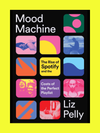“Take the Intimate and Make it Epic”
Director Bao Nguyen chats IRL on 'The Greatest Night in Pop,' his documentary about the making of "We Are the World."

“We Are the World,” the 1985 charity single by the mega-supergroup USA for Africa, is by this point such an obelisk of the U.S. pop cultural fabric that one can’t be blamed for not knowing its depth. Even when it was released, the fact of the 20x platinum single was so huge that it could be hard to get your head around it. I was a child of the MTV Generation, eight when it came out. I remember being excited to see my favorite pop stars—Michael Jackson, Cindi Lauper, Tina Turner—all in one video. But the reality of its massiveness didn’t fully register until I saw The Greatest Night in Pop, director Bao Nguyen’s remarkable 2024 documentary about the making of the song.
“We Are the World,” conceived by Harry Belfonte and produced by Quincy Jones, raised over $63 million for humanitarian aid in the war-created famine in Ethiopia. The Greatest Night in Pop deftly complicates its incredible trove of documentary footage with its focus on this singular purpose, capturing what was probably the greatest music-charity moment ever. It’s inspiring and unfortunately relevant, a look at how musicians can effect change if they really want to.
Earlier this summer, our partners at BRIC Celebrate Brooklyn screened The Greatest Night in Pop in Prospect Park, as part of programming honoring Quincy Jones (which also included The Wiz). On a balmy June evening under the Lena Horne Bandshell, I moderated a pre-movie panel with Nguyen and New Yorker critic Doreen St. Felix about both the film and the song. An excerpt of our conversation follows. For the full effect, I recommend watching The Greatest Night in Pop on Netflix after reading. (I’m also eager to watch Nguyen’s next documentary, The Stringer, about the authorship of the most famous photograph from the Vietnam War—of a young Phan Thi Kim Phúc running from a napalm strike.) Our conversation has been condensed and edited for clarity.





